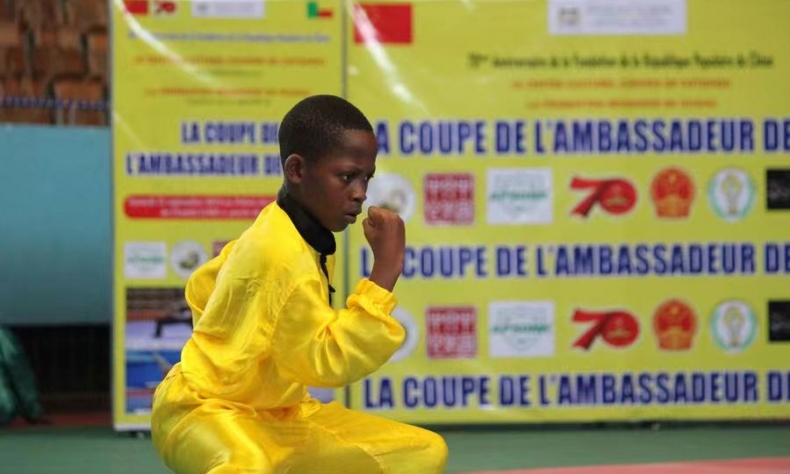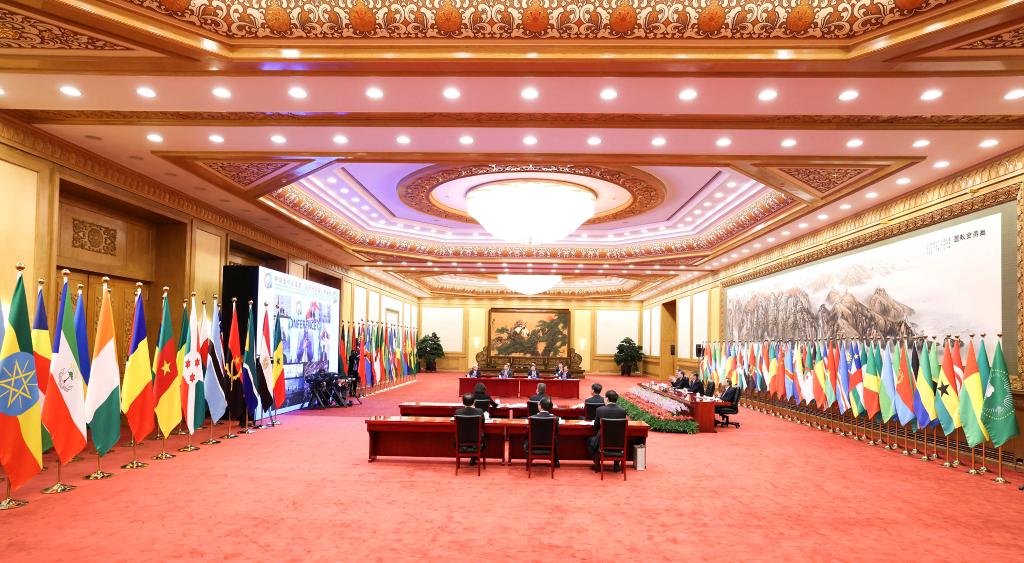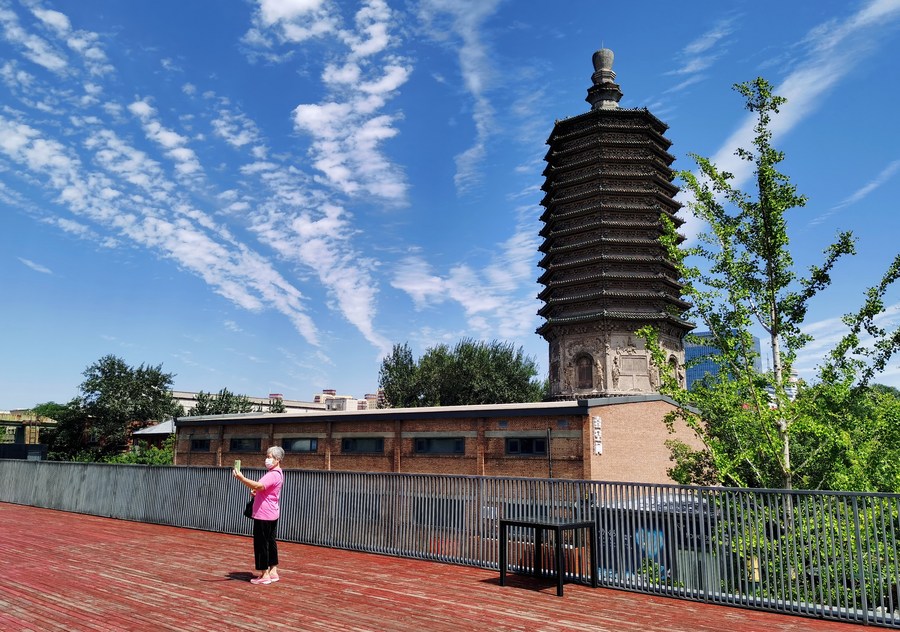Solidifying Friendship

When you are fighting against poverty, you don’t give hope to people; you let them stay in their condition and assist them. But when you bring people out of poverty, you give them hope because you are taking them out from their condition to another condition.
This year marks the 50th anniversary of the restoration of diplomatic relations between China and Benin. During this period, China-Benin relations have grown from strength to strength. On this special occasion, ChinAfrica interviewed Simon Pierre Adovelande, Beninese ambassador to China, to hear his viewpoints about the development of China-Benin relations. Edited excerpts of the interview are as follows:
ChinAfrica: How do you view the relations between China and Benin over the past half century?
Simon Pierre Adovelande: I think Benin and China have enjoyed a mutual friendship based on trust, respect and win-win cooperation during the past 50 years. We were fortunate that our leaders, Chinese President Xi Jinping and Beninese President Patrice Talon, had the opportunity to meet in Beijing in September 2018 to bring this relationship to another level.
That meeting was a turning point in this relationship and brought China and Benin on the same page regarding the main challenges the world is facing today.
Our two leaders presented a roadmap for the relationship between our two countries. In terms of prospects, the relationship between China and Benin is mature, and we have three frameworks that are being used to develop it; the first one being our bilateral relationship, followed by the framework of Forum on China-Africa Cooperation (FOCAC), and lastly, the Belt and Road Initiative. With this, we have the tools that allow each party to play their role in those frameworks and be more efficient in terms of achieving results.

What do you think of the nine programmes proposed at the Eighth FOCAC Ministerial Conference held in Dakar, Senegal, in 2021? In your opinion, how important is it to align them with the Government Action Programme 2021-2026 of Benin?
The FOCAC Dakar Action Plan (2022-2024) is the result of a good consultation between the two sides. The last FOCAC meeting has seen the convergence in points of view of the two parties. During the preparation, each party presented its needs, challenges and perspective on this cooperation, and then when we gathered in Dakar, the outcome was really a result of successful engagement, a frank consultation. This action plan addresses the needs and challenges that the continent of Africa wants to tackle through this cooperation framework. For me, the Dakar Action Plan shows the maturity of FOCAC. It shows the improvement based on the lessons learned from the past 20 years of FOCAC.
Now coming to the Beninese government’s action plan for 2021-2026, it is based on three major pillars. The first one is the strengthening of democracy, rule of law and good governance. Our second pillar is the continuation of structural transformation of the economy. What I mean by structural transformation is to make the government more responsible in terms of expenditure, and in terms of the execution of the budget. Finally, the third pillar is the improvement of the wellbeing of the people.
The Dakar Action Plan reflects the three pillars of our action plan of the government, and that makes it something unique, successfully coordinated, and easy to implement to get results.
China has witnessed a lot of changes in the past over 10 years. Which ones have impressed you the most? What’s the best way to describe these changes?
I see three major transformations that really impress me. The first one is the fight against pollution, especially air pollution. I remember when I came to China six years ago, we had to wear masks not because of COVID-19, but because of pollution during the winter. But after two years, we started to see the beauty of the blue sky of Beijing. That is impressive.
The second one is the preservation of the environment. When you travel around the country, you can see how clean the country is and how the cities are able to improve the environment. They are preserving the ecological system of the country. That is also something very important. It feels like there is a competition among the cities for being greener.

The third one is the fight to bring people out of poverty. Because I am an economist by profession, we’re used to talking about fighting against poverty. When you say you fight against poverty, it means people who are in poverty need to accept their condition, and afterwards, you are going to help them. But what I learned here in China, the concept is totally different – it is how to bring people out of poverty. The mindset is totally different. People need to change their mindset, knowing that they need to get out from there. That gives them hope. When you are fighting against poverty, you don’t give hope to people; you let them stay in their condition and assist them. But when you bring people out of poverty, you give them hope because you are taking them out from their condition to another condition. And that is a big transformation. It takes strong leadership to make it happen that way. And that’s what is most impressive about China.
This year marks the 10th anniversary of the establishment of Ningbo and Cotonou’s sister-city relationship, and Benin (West Africa) China Products Fair has successfully been held for 11 years. What benefits did this arrangement bring to the local people?
The first thing this relationship brings to the people is that they start to know each other more. Sister cities started with interactions among local leaders of the cities, but then local people started holding different activities. The fair is like a celebration between the people from Ningbo and the people of Cotonou, and for them to have a chance to discover the products from both cities.
Each year, they bring new products based on the needs or the requests that the people made in the previous fair. That is something very important – the discovery of the products.
But I think after 10 years, we need to expand that relationship, to find a way to offer scholarships for the training of the young people, and give them access to knowledge and technology. The second thing is to see how the small and medium enterprises (SMEs) in Cotonou and those in Ningbo can work together, for instance, adding value to the agricultural products that they are producing.
The SMEs in Ningbo coming to Cotonou with equipment to add value to the products for both the local market and the market in China is a new perspective that we can start working on.
 Facebook
Facebook
 Twitter
Twitter
 Linkedin
Linkedin
 Google +
Google +










